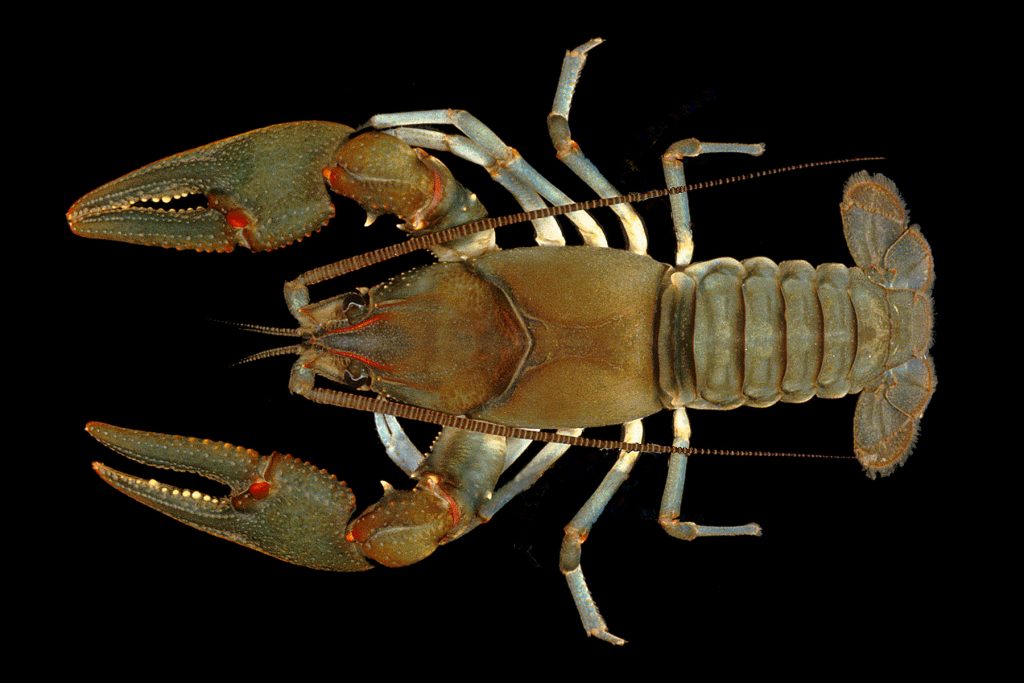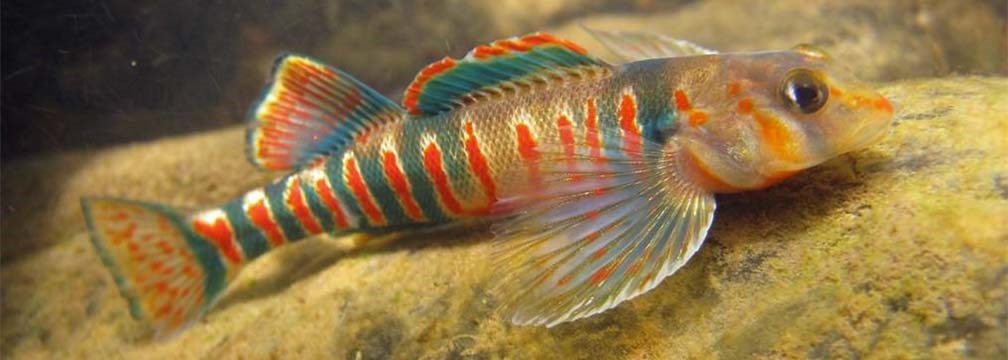FOR IMMEDIATE RELEASE
November 8, 2023
CONTACT
Perrin de Jong, Center for Biological Diversity, perrin@biologicaldiversity.org
Dan Radmacher, Appalachian Voices, dan@appvoices.org
CHARLESTON, W.Va. — The Center for Biological Diversity and Appalachian Voices today sued the U.S. Office of Surface Mining Reclamation and Enforcement and the U.S. Fish and Wildlife Service for failing to protect highly imperiled wildlife from the devastating harms of coal mining in Kentucky, West Virginia and Virginia.
The agencies have failed to implement required protections for imperiled species, putting wildlife such as the endangered Guyandotte River crayfish and candy darter and the threatened Big Sandy crayfish at great risk.
The lawsuit stems from an intensive investigation in progress since early 2022. The suit explains that the agencies have failed to ensure that essential protective measures are in place to prevent these federally protected species from going extinct, as the Endangered Species Act requires.
“Our in-depth investigation found a total breakdown in the process designed to protect imperiled wildlife from the disastrous harms of coal mining,” said Perrin de Jong, Southeast staff attorney at the Center for Biological Diversity. “Every state and federal agency responsible for implementing endangered species protections is asleep behind the wheel. If they put as much effort into following the law as they do helping the coal industry dodge its obligations to prevent extinction, these species would be in a much better place today.”
The Center and Appalachian Voices have uncovered hundreds of coal mining facilities in Kentucky, West Virginia and Virginia that threaten critical habitat for the two imperiled crayfish species and the candy darter — and which lack the required protections for the species and their habitat.
“Better protection for these rivers and creeks doesn’t just help threatened and endangered species, it is also crucial for the long-term wellbeing of the communities that depend on these important waterways,” said Willie Dodson, Central Appalachian Field Coordinator for Appalachian Voices. “It’s well past time that regulators do their jobs to ensure that the coal industry abides by the law and reduces water pollution that harms communities as well as at-risk species.”
West Virginia, Kentucky and Virginia are responsible for regulating the coal industry within their borders, but that’s subject to federal oversight by the two agencies being sued.
According to a binding biological opinion issued by the service in 2020, all facilities that could affect listed species or their critical habitat must develop plans and implement sufficient protective measures to avoid the risk of extinction and habitat degradation for protected species before any coal mining may take place.
Nearly three years later, no such protective plans exist for hundreds of mining operations that discharge sediment and other contaminants into waterways designated as critical habitat for these species. Furthermore, dozens of facilities have continued coal mining operations since 2020 without implementing the required protections. The findings constitute a wholesale failure by these federal agencies to implement the requirements of the biological opinion.
Today’s lawsuit, filed in the U.S. District Court for the District of Columbia, argues that the agencies must revise the program and ensure that effective and enforceable measures are in place to truly protect imperiled wildlife from extinction.
Background
Three imperiled species are particularly at risk from these federal failures.
The endangered Guyandotte River crayfish has been wiped out from 93% of its range and now only lives in two creeks in West Virginia. The threatened Big Sandy crayfish has been wiped out from more than 60% of its range and survives in the upper Big Sandy River basin across Southern West Virginia, Eastern Kentucky and Southwest Virginia. The endangered candy darter has been wiped out from 49% of its range, and clings to survival in the Gauley and New River basins in West Virginia and Virginia.
All three species have suffered from the devastating impacts of coal mining, a primary driver that has pushed them to brink of extinction.
Scientific studies have linked coal mining to declines in birds, fish, salamanders, crayfish, insects and freshwater mussels. More than 1 million acres of hardwood forest and more than 2,000 miles of streams have already been destroyed by surface coal mining in Appalachia.
Mining also threatens nearby communities with air and water pollution and risk of flooding. More than 20 peer-reviewed scientific studies have now linked mining pollution in Appalachia to health problems, including increased risk of cancer, cardiovascular disease and birth defects.

Big Sandy crayfish photo by Guenter Schuster. This image is available for media use

The endangered candy darter. Photo by U.S. Fish and Wildlife Service
###
The Center for Biological Diversity is a national, nonprofit conservation organization with more than 1.7 million members and online activists dedicated to the protection of endangered species and wild places.
Appalachian Voices is a regional nonprofit organization that brings people together to protect the land, air and water of Central and Southern Appalachia and advance a just transition to a generative and equitable clean energy economy.



